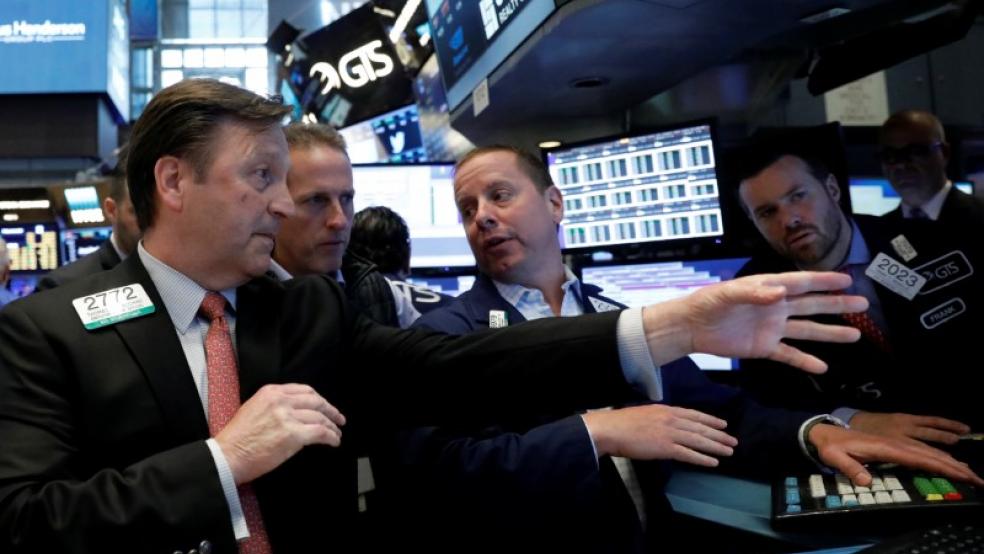NEW YORK (Reuters) - Global equity markets were little changed on Wednesday as Wall Street eked out new closing highs, while the dollar rose on U.S. producer prices data for August that suggested a robust economy.
The yields on European and U.S. government debt rose, with prices for the U.S. benchmark Treasury note hitting a 2-1/2-week high.
Oil prices gained after the International Energy Agency (IEA) said a global supply surplus was starting to shrink, even as U.S. data showed another surge in crude inventories due to Hurricane Harvey.
The three major Wall Street equity indexes posted record closes for the second consecutive session as gains in consumer discretionary and energy stocks offset losses in Apple, pulled lower over concerns about its new iPhone X.
MSCI's gauge of more than 2,400 stocks worldwide edged downward after consecutive record closes the past three sessions.
European equities pared earlier losses to edge higher thanks to gains in oil and banking stocks, which offset weak chipmakers and a fall in miners <.sxpp>.
Chipmakers in Europe that supply Apple
were among the worst performers, with AMS down 3.9 percent and Dialog Semiconductor off 1.6 percent. STMicro edged up 0.1 percent.Chipmakers have been the best-performing among Europe's tech stocks this year, accounting for a large chunk of the sector's outperformance. AMS shares have gained 165 percent in the year to date.MSCI's all-country world stock index <.miwd00000pus> dipped 0.16 percent, but the pan-European FTSEurofirst 300 index <.fteu3> gained 0.2 percent and the Euro STOXX 50 <.stoxx50e> added 0.3 percent.On Wall Street, the Dow Jones Industrial Average <.dji> rose 39.32 points, or 0.18 percent, to 22,158.18. The S&P 500 <.spx> gained 1.89 points, or 0.08 percent, to 2,498.37 and the Nasdaq Composite <.ixic> added 5.91 points, or 0.09 percent, to 6,460.19.The launch of Apple's iPhone X will test whether inflation is going to be weak as investors gauge demand for a product whose price starts at $999, said Mike Bell, global markets strategist with JP Morgan Asset Management in London."If it's relatively healthy, I think it shows that there is still quite a lot of pricing power for U.S. companies and consumers have confidence," Bell said.The dollar index <.dxy>, which tracks the currency against a basket of six major rivals, was up 0.60 percent at 92.431.The index rose after the U.S. Labor Department said its producer price index for final demand increased 0.2 percent in August after slipping 0.1 percent in July. The rebound was driven by a surge in the cost of gasoline.The euro fell 0.69 percent to $1.1883 while the Japanese yen weakened 0.36 percent versus the greenback at 110.56 per dollar.U.S. benchmark 10-year Treasury notes fell 7/32 in price to yield 2.1970 percent. Their German counterpart, 10-year Bunds , rose 3 basis points in price to yield 0.404 percent.Oil prices jumped after the IEA report but then pared gains. U.S. crude rose $1.07 to settle at $49.30 per barrel and Brent rose 89 cents to settle at $55.16 a barrel. [O/R]"A sharp rebound in U.S. oil production compared with last week has limited gains in crude prices as concerns grow that oil output is recovering faster than refining capacity coming online," said Abhishek Kumar, senior energy analyst at Interfax Energy's Global Gas Analytics in London.U.S. gold futures for December delivery settled down 0.4 percent at $1,328. (Reporting by Herbert Lash; editing by Nick Zieminski and G Crosse)



